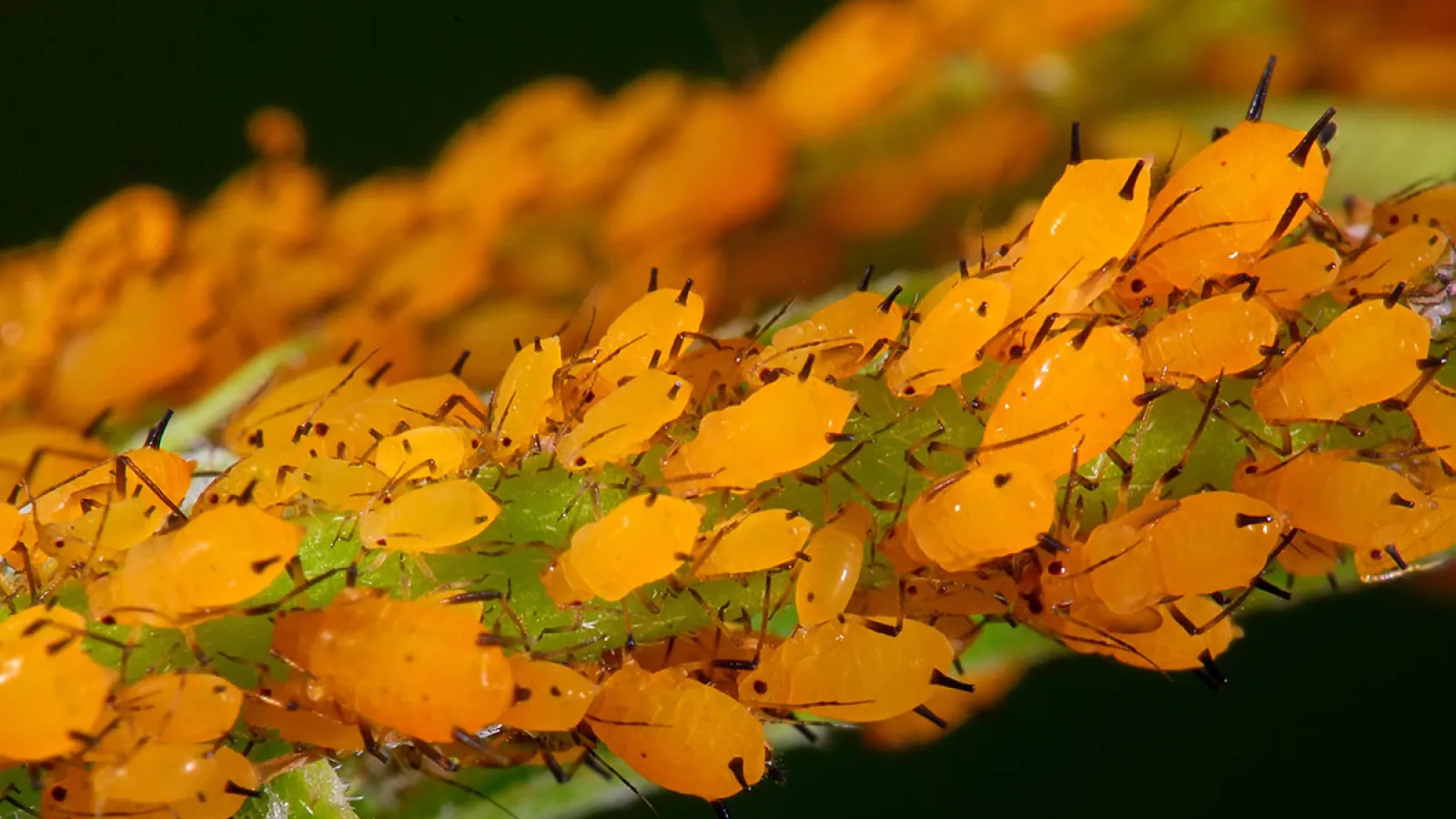
Aphids
Aphids are small, sap-sucking insects belonging to the order Hemiptera. They are common pests found worldwide, including in the southeastern United States. In this region, aphids can be particularly problematic due to the warm and humid climate, which provides favorable conditions for their reproduction and proliferation.
Species: The southeast is home to a variety of aphid species, including but not limited to green peach aphids, cotton aphids, soybean aphids, and melon aphids. Each species may have specific host plants and preferred habitats.
Life Cycle: Aphids typically have a complex life cycle involving both sexual and asexual reproduction. In favorable conditions, such as those commonly found in the southeast USA, aphids can reproduce rapidly. Female aphids can give birth to live offspring without mating, allowing for exponential population growth.
Damage to Plants: Aphids feed on the sap of plants by piercing the plant tissue with their mouthparts. This feeding can cause stunted growth, distorted leaves, wilting, and yellowing of foliage. Additionally, aphids excrete a sugary substance known as honeydew, which can attract ants and serve as a growth medium for sooty mold, further compromising plant health.
Transmission of Plant Diseases: Aphids can transmit plant diseases, such as viruses, through their feeding activities. In crops like soybeans and cotton, aphid infestations can lead to reduced yields and quality due to both direct feeding damage and the transmission of viral pathogens.
Natural Enemies: Aphids have several natural enemies that help regulate their populations, including lady beetles, lacewings, parasitic wasps, and predatory bugs. Conservation of these natural enemies through habitat management and reduced pesticide use can help control aphid populations in agricultural and garden settings.
Management: Integrated pest management (IPM) strategies are commonly employed to manage aphids in our area. These strategies may include cultural practices (such as crop rotation and planting resistant varieties), biological control (introduction of natural enemies), and the use of insecticides.
Environmental Factors: Weather conditions, such as temperature and humidity, can influence aphid populations. Mild winters and early springs may allow aphids to survive and reproduce year-round, contributing to their status as persistent pests in agricultural and horticultural systems.
To get rid of aphids, it's best to target the plants they feed off. Spraying a mild mixture of soap and water on leaves may repel them, as does dusting plants with flour, which constipates aphids.
If you're seeing aphids around your home, contact the pest professionals at Palmetto Exterminators.
Similar Pests: Stink Bug